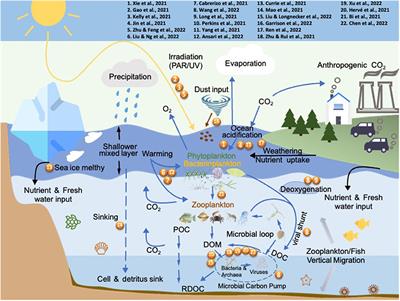EDITORIAL
Published on 06 Sep 2022
Editorial: Responses of marine microbes to multiple environmental drivers of global change: The interplay of abiotic and biotic factors

doi 10.3389/fmicb.2022.975841
- 1,674 views
20k
Total downloads
90k
Total views and downloads
Select the journal/section where you want your idea to be submitted:
EDITORIAL
Published on 06 Sep 2022

ORIGINAL RESEARCH
Published on 09 Jun 2022

REVIEW
Published on 25 Apr 2022

ORIGINAL RESEARCH
Published on 19 Apr 2022

ORIGINAL RESEARCH
Published on 08 Apr 2022

ORIGINAL RESEARCH
Published on 31 Mar 2022

ORIGINAL RESEARCH
Published on 08 Mar 2022

ORIGINAL RESEARCH
Published on 17 Feb 2022

ORIGINAL RESEARCH
Published on 10 Feb 2022

ORIGINAL RESEARCH
Published on 25 Jan 2022

ORIGINAL RESEARCH
Published on 06 Dec 2021

ORIGINAL RESEARCH
Published on 12 Nov 2021


Frontiers in Marine Science